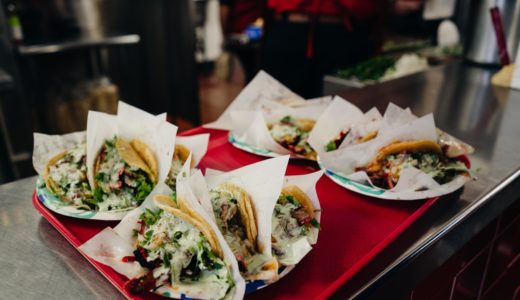FREE CONSULTATIONS:
415.925.5161

Misclassified Delivery Drivers Get $650,000 in Back Wages from Romero’s Food Products
A food manufacturer in Santa Fe Springs, California, is on the hook for $650,000 after the U.S. Department of Labor’s (DOL) efforts to recover back wages for a group of misclassified delivery drivers. Worker misclassification is a serious issue that can cheat workers out of their rightful pay.
Romero’s Food Products misclassified 26 delivery drivers as independent contractors instead of employees. The workers were tasked with delivering the company’s Mexican-style food products to retail grocery outlets such as Albertson’s, Costco, and Walmart. The misclassification meant that workers were denied overtime pay and worker protections.
The DOL Regional Solicitor’s Office in San Francisco filed a complaint and received a consent judgment from the U.S. District Court for the Central District of California. Romero’s Food Products was ordered to pay back wages to the affected workers.
The court also warned the employer to refrain from committing further Fair Labor Standards Act violations. Additionally, Romero’s Food Products was barred from employing any worker for more than 40 hours in a workweek without ensuring they received the required overtime pay.
The judgment came after an investigation by the DOL’s Wage and Hour Division. Misclassifying delivery drivers as independent contractors meant that Romero’s Food Products failed to pay them the required overtime rate for working over 40 hours in a regular workweek.
The wage and hour violations occurred between October 2017 and October 2022. The investigation also revealed that Romero’s Food Products did not keep accurate employee records. Additionally, the employer forced many workers to agree to resolve potential employment disputes outside of court. Such agreements often contain mandatory arbitration clauses that put workers at a disadvantage when they try to recover their owed wages.
Worker misclassification is a major source of employment disputes. It occurs when workers are improperly classified as independent contractors when they are actually employees. Employers often misclassify workers to avoid the legal obligations of a traditional employment relationship, such as avoiding paying overtime or providing benefits to workers.
Employers cannot unlawfully treat delivery drivers as independent contractors while claiming that doing so is a common industry practice. By misclassifying workers, employers deprive them of their basic rights under California labor law.
There are distinct differences between employees and independent contractors. Employees are entitled to various labor protections and benefits, such as minimum wage, overtime pay, family leave, and the right to join labor unions. Independent contractors, on the other hand, work free from an employer’s control and are responsible for their own business-related expenses.
In recent years, California has taken steps to address the issue of worker misclassification, primarily through the enactment of Assembly Bill 5 (AB 5), which went into effect on January 1, 2020. AB 5 codified the “ABC test” for determining worker classification. A worker is presumed to be an employee unless the hiring entity can prove all three elements of the test:
- The worker is not under the direction or control of the hiring entity.
- The worker carries out tasks that fall outside the hiring entity’s usual scope of business.
- The worker routinely carries out an independently established trade, business, or occupation of the same type as the work they are doing.
Several industries, most notably rideshare and food delivery services, were heavily impacted by AB 5 due to their widespread use of independent contractors. These companies, such as Uber and Lyft, fiercely opposed the legislation and sought exemptions.
As a result, Proposition 22 was put forth and passed by California voters in November 2020, creating a hybrid classification for app-based rideshare and delivery drivers. It provides some labor protections while still allowing them to be treated as independent contractors.
Legal challenges, court rulings, and potential legislative changes can impact the landscape of worker misclassification in California. Because the situation is complex and evolving, it is important to consult an experienced employment lawyer who is aware of the latest developments.
Protecting workers from misclassification is a priority for McCormack Law Firm. If you suspect you have been misclassified as an independent contractor, reach out to our knowledgeable San Francisco employment lawyers. We can help you determine whether you have been misclassified and recover your unpaid wages. To learn more, contact us today for a free case evaluation.
Read more
Bay Area Taqueria Fined and Ordered to Pay Workers $45K for Wage Violations
For many restaurant workers, long hours and physically demanding tasks are part of the job. However, some endure another layer of hardship when employers fail to pay legally required wages. Wage theft…
Fired for Raising Concerns at Work? What the Hint Water Case Reveals About Retaliation
Workplace disputes can arise at any level of a company, even at the very top. A lawsuit filed against flavored water brand Hint, Inc. underscores how even high-ranking executives can face retaliation…
San Francisco Karaoke Bar Accused of Taking Tips and Retaliating Against Staff
San Francisco’s nightlife thrives on bars, clubs and entertainment venues that attract both locals and tourists. However, behind the scenes, workers in the hospitality industry often face challenges that go unnoticed by…
San Francisco’s Bi-Rite Grocery Chain Sued Over Alleged Wage Violations
Wage theft remains a serious issue in California workplaces across various industries, leaving employees without the pay they have rightfully earned. Many workers depend on their wages to cover rent, groceries and…
SEEN ON









